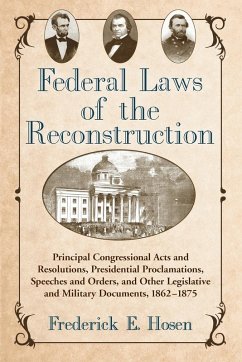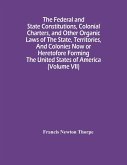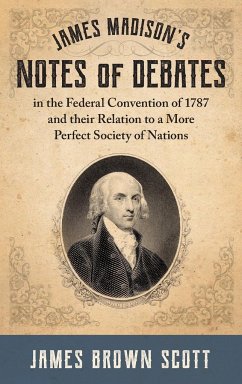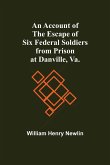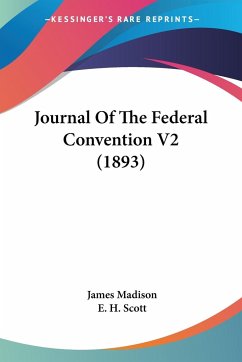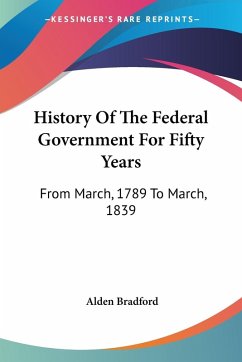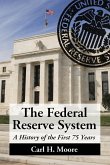Federal Laws of the Reconstruction
Principal Congressional Acts and Resolutions, Presidential Proclamations, Speeches and Orders, and Other Legislative and Military Documents, 1862-1875
Federal Laws of the Reconstruction
Principal Congressional Acts and Resolutions, Presidential Proclamations, Speeches and Orders, and Other Legislative and Military Documents, 1862-1875
- Broschiertes Buch
- Merkliste
- Auf die Merkliste
- Bewerten Bewerten
- Teilen
- Produkt teilen
- Produkterinnerung
- Produkterinnerung
This collection of documents (primarily statutes and presidential proclamations), provide an important research tool that gives a unique sense of the Reconstruction process. Included are 37 acts of congress, 44 presidential proclamations, eight congressional resolutions, one inaugural speech, one military field order, one presidential order, and two war department circulars, all reproduced in their entirety and arranged chronologically.
Andere Kunden interessierten sich auch für
![The Federal And State Constitutions, Colonial Charters, And Other Organic Laws Of The State, Territories, And Colonies Now Or Heretofore Forming The United States Of America (Volume Vii) The Federal And State Constitutions, Colonial Charters, And Other Organic Laws Of The State, Territories, And Colonies Now Or Heretofore Forming The United States Of America (Volume Vii)]() Francis Newton ThorpeThe Federal And State Constitutions, Colonial Charters, And Other Organic Laws Of The State, Territories, And Colonies Now Or Heretofore Forming The United States Of America (Volume Vii)56,99 €
Francis Newton ThorpeThe Federal And State Constitutions, Colonial Charters, And Other Organic Laws Of The State, Territories, And Colonies Now Or Heretofore Forming The United States Of America (Volume Vii)56,99 €![James Madison's Notes of Debates in the Federal Convention of 1787 and their Relation to a More Perfect Society of Nations (1918) James Madison's Notes of Debates in the Federal Convention of 1787 and their Relation to a More Perfect Society of Nations (1918)]() James Brown ScottJames Madison's Notes of Debates in the Federal Convention of 1787 and their Relation to a More Perfect Society of Nations (1918)28,99 €
James Brown ScottJames Madison's Notes of Debates in the Federal Convention of 1787 and their Relation to a More Perfect Society of Nations (1918)28,99 €![An Account Of The Escape Of Six Federal Soldiers From Prison At Danville, Va. An Account Of The Escape Of Six Federal Soldiers From Prison At Danville, Va.]() William Henry NewlinAn Account Of The Escape Of Six Federal Soldiers From Prison At Danville, Va.21,99 €
William Henry NewlinAn Account Of The Escape Of Six Federal Soldiers From Prison At Danville, Va.21,99 €![Journal Of The Federal Convention V2 (1893) Journal Of The Federal Convention V2 (1893)]() James MadisonJournal Of The Federal Convention V2 (1893)40,99 €
James MadisonJournal Of The Federal Convention V2 (1893)40,99 €![History Of The Federal Government For Fifty Years History Of The Federal Government For Fifty Years]() Alden BradfordHistory Of The Federal Government For Fifty Years43,99 €
Alden BradfordHistory Of The Federal Government For Fifty Years43,99 €![The Federal Reserve System The Federal Reserve System]() Carl H. MooreThe Federal Reserve System39,99 €
Carl H. MooreThe Federal Reserve System39,99 €![Official register of the United States 1937; Containing a list of Persons Occupying administrative and Supervisory Positions in the Legislative, Executive, and Judicial Branches of the Federal Government, and in the District of Columbia Official register of the United States 1937; Containing a list of Persons Occupying administrative and Supervisory Positions in the Legislative, Executive, and Judicial Branches of the Federal Government, and in the District of Columbia]() UnknownOfficial register of the United States 1937; Containing a list of Persons Occupying administrative and Supervisory Positions in the Legislative, Executive, and Judicial Branches of the Federal Government, and in the District of Columbia22,99 €
UnknownOfficial register of the United States 1937; Containing a list of Persons Occupying administrative and Supervisory Positions in the Legislative, Executive, and Judicial Branches of the Federal Government, and in the District of Columbia22,99 €-
-
-
This collection of documents (primarily statutes and presidential proclamations), provide an important research tool that gives a unique sense of the Reconstruction process. Included are 37 acts of congress, 44 presidential proclamations, eight congressional resolutions, one inaugural speech, one military field order, one presidential order, and two war department circulars, all reproduced in their entirety and arranged chronologically.
Hinweis: Dieser Artikel kann nur an eine deutsche Lieferadresse ausgeliefert werden.
Hinweis: Dieser Artikel kann nur an eine deutsche Lieferadresse ausgeliefert werden.
Produktdetails
- Produktdetails
- Verlag: McFarland
- Seitenzahl: 206
- Erscheinungstermin: 4. Januar 2010
- Englisch
- Abmessung: 229mm x 152mm x 12mm
- Gewicht: 343g
- ISBN-13: 9780786446681
- ISBN-10: 0786446684
- Artikelnr.: 26573039
- Herstellerkennzeichnung
- Libri GmbH
- Europaallee 1
- 36244 Bad Hersfeld
- gpsr@libri.de
- Verlag: McFarland
- Seitenzahl: 206
- Erscheinungstermin: 4. Januar 2010
- Englisch
- Abmessung: 229mm x 152mm x 12mm
- Gewicht: 343g
- ISBN-13: 9780786446681
- ISBN-10: 0786446684
- Artikelnr.: 26573039
- Herstellerkennzeichnung
- Libri GmbH
- Europaallee 1
- 36244 Bad Hersfeld
- gpsr@libri.de
Frederick E. Hosen is the author of several McFarland books relating to the laws of the United States. He lives in Christiansburg, Virginia.
Table of Contents
Preface
Table I. Population of Regions by Race for the Years 1860, 1870, 1880
Table II. Population of Southern States by Race for the Years 1860, 1870,
1880
CORE DOCUMENTS
A Proclamation by the President of the United States of America. No. 16.
September 22, 1862
"The war will be prosecuted for the object of practically restoring the
Constitutional relation between the United States and each of the states
and the people thereof."
A Proclamation by the President of the United States of America. No. 17.
January 1, 1863
"Designate as the states and parts of states ... in rebellion against the
United States," and "declare that all persons held as slaves within said
designated states and parts of states are, and henceforward shall be,
free."
A Proclamation by the President of the United States of America. No. 11.
December 8, 1863
Upon condition of signing an oath, a pardon may be granted to persons of
the rebellion. Certain persons are excepted from amnesty. Provision is made
for state government to be reestablished. Provision is made regarding freed
men.
A Proclamation by the President of the United States of America. No. 14.
March 26, 1864
The pardon/amnesty Proclamation of December 8, 1863, does not apply to
persons in custody.
An Act to Repeal the Fugitive Slave Act of eighteen hundred and fifty, and
all acts and parts of acts for the rendition of fugitive slaves. June 28,
1864
A Proclamation by the President of the United States of America. No. 18.
July 8, 1864
"A bill to 'guarantee to certain states, whose governments have been
usurped or overthrown, a republican form of government,' a copy of which is
hereunto annexed"; this bill was not signed by the President although he
was "fully satisfied with the system for restoration in the bill as a very
proper plan."
A Resolution submitting to the legislatures of the several states a
proposition to amend the Constitution of the United States. No. 11.
February 1, 1865. (13th Amendment)
An Act to establish a Bureau for the Relief of Freedmen and Refugees. March
3, 1865
An Act to incorporate the Freedman's Savings and Trust Company. March 3,
1865
A Proclamation by the President of the United States of America. No. 37.
May 29, 1865
The granting of amnesty and pardon to certain persons "who had directly or
by implication participated in the said rebellion."
A Proclamation by the President of the United States of America. No. 1.
April 2, 1866
A declaration that the insurrection is at an end.
An Act to protect all persons in the United States in their civil rights,
and furnish the means of their vindication. April 9, 1866
A Joint Resolution proposing an amendment to the Constitution of the United
States. No. 48. June 16, 1866. (14th Amendment)
An Act to continue in force and to amend "An Act to establish a Bureau for
the Relief of Freedmen and Refugees," and for other purposes. July 16,
1866
A Proclamation by the President of the United States of America. No. 4.
August 20, 1866
The insurrection in Texas is declared to be at an end, and peace exists
throughout the United States.
A Joint Resolution authorizing the employment of a public vessel for the
transportation of provisions to the people of the Southern States. No. 23.
February 22, 1867
An Act to provide for the more efficient government of the Rebel States.
March 2, 1867
A Resolution for the relief of freedmen or destitute colored people in the
District of Columbia. No. 4. March 16, 1867
An Act supplementary to an Act entitled "An Act to provide for the more
efficient government of the Rebel States," passed March 2, 1867, and to
facilitate restoration. March 23, 1867
A Joint Resolution to furnish the transportation of provisions to the
destitute in the South. No. 17. March 29, 1867
A Resolution for the relief of the destitute in the Southern and
Southwestern States. No. 28. March 30, 1867
An Act supplementary to an Act entitled "An Act to provide for the more
efficient government of the Rebel States," passed on March 2, 1867, and the
Act supplementary thereto, passed March 23, 1867. July 19, 1867
A Proclamation by the President of the United States of America. No. 3.
September 7, 1867
Provides for full pardon to all persons of the rebellion with some
exceptions.
A Proclamation by the President of the United States of America. No. 4.
October 7, 1867
Corrects an error in the Proclamation of August 20, 1866.
A Joint Resolution for the Relief of destitute persons in the South. No. 7.
January 31, 1868
An Act to amend the Act passed March 23, 1867, entitled "An Act
supplementary to 'An Act to provide for the more efficient government of
the Rebel States,' passed March 2, 1867, and to facilitate their
restoration." March 11, 1868
An Act to admit the States of North Carolina, South Carolina, Louisiana,
Georgia, Alabama, and Florida, to representation in Congress. June 25,
1868
A Proclamation by the President of the United States of America. No. 6.
July 4, 1868
Provides for the full pardon to all persons, except those under indictment
for treason or felony, engaged in the rebellion. Also, provides for the
"restoration of all rights of property, except as to slaves."
An Act to continue the Bureau for the Relief of Freedmen and Refugees, and
for other purposes. July 6, 1868
An Act relating to the Freedmen's Bureau and providing for its
discontinuance. July 25, 1868
A Proclamation by the President of the United States of America. No. 15.
December 25, 1868
Provides for a full and unconditional pardon and amnesty to all persons
engaged in the rebellion.
A Resolution proposing an Amendment to the Constitution of the United
States. No. 14. February 27, 1869. (15th Amendment)
An Act to enforce the Rights of Citizens of the United States to vote in
the several States of this Union, and for other purposes. May 31, 1870
An Act to amend an Act approved May 31, 1870, entitled "An Act to enforce
the Rights of Citizens of the United States to vote in the several States
of this Union, and for other purposes."
February 28, 1871
A Proclamation by the President of the United States of America. No. 17.
March 24, 1871
A command for the cessation, in South Carolina, of persons causing unrest
to retire peaceably.
An Act to enforce the provisions of the Fourteenth Amendment to the
Constitution of the United States, and for other purposes. April 20,
1871
A Proclamation by the President of the United States of America. No. 2. May
3, 1871
Regarding enforcement of the "act to enforce the provisions of the
Fourteenth Amendment to the Constitution of the United States."
A Proclamation by the President of the United States of America. No. 3.
October 12, 1871
Regarding "unlawful combinations and conspiracies ... in the State of South
Carolina."
A Proclamation by the President of the United States of America. No. 4.
October 17, 1871
Suspension of the writ of habeas corpus in certain counties of the State of
South Carolina.
A Proclamation by the President of the United States of America. No. 6.
November 3, 1871
(1) Revokes the suspension of the writ of habeas corpus as to Marion
County, South Carolina. (2) Adds Union County, South Carolina, to the
counties previously identified as places of unlawful combinations and
conspiracies.
A Proclamation by the President of the United States of America. No. 7.
November 10, 1871
The writ of habeas corpus is suspended in Union County, South Carolina.
An Act to protect all citizens in their civil and legal rights. March 1,
1875
Appendix A: Laws Providing for a Republican Form of Government for the
Rebel States
Appendix B: Laws Providing for the Readmission of the Rebel States to the
Union
Appendix C: Principal Laws (1861-1863) for the Identification of Those
States in Rebellion and for the Suspension of Habeas Corpus
Appendix D: Several Regulations and a Speech That Are Relevant to the
Reconstruction
Appendix E: Laws Authorizing a Response to Rebellion or Insurrection
Appendix F: Miscellaneous Laws Relevant to Reconstruction
Appendix G: Laws Related to Slave and Peonage Labor
Bibliography
Index
Preface
Table I. Population of Regions by Race for the Years 1860, 1870, 1880
Table II. Population of Southern States by Race for the Years 1860, 1870,
1880
CORE DOCUMENTS
A Proclamation by the President of the United States of America. No. 16.
September 22, 1862
"The war will be prosecuted for the object of practically restoring the
Constitutional relation between the United States and each of the states
and the people thereof."
A Proclamation by the President of the United States of America. No. 17.
January 1, 1863
"Designate as the states and parts of states ... in rebellion against the
United States," and "declare that all persons held as slaves within said
designated states and parts of states are, and henceforward shall be,
free."
A Proclamation by the President of the United States of America. No. 11.
December 8, 1863
Upon condition of signing an oath, a pardon may be granted to persons of
the rebellion. Certain persons are excepted from amnesty. Provision is made
for state government to be reestablished. Provision is made regarding freed
men.
A Proclamation by the President of the United States of America. No. 14.
March 26, 1864
The pardon/amnesty Proclamation of December 8, 1863, does not apply to
persons in custody.
An Act to Repeal the Fugitive Slave Act of eighteen hundred and fifty, and
all acts and parts of acts for the rendition of fugitive slaves. June 28,
1864
A Proclamation by the President of the United States of America. No. 18.
July 8, 1864
"A bill to 'guarantee to certain states, whose governments have been
usurped or overthrown, a republican form of government,' a copy of which is
hereunto annexed"; this bill was not signed by the President although he
was "fully satisfied with the system for restoration in the bill as a very
proper plan."
A Resolution submitting to the legislatures of the several states a
proposition to amend the Constitution of the United States. No. 11.
February 1, 1865. (13th Amendment)
An Act to establish a Bureau for the Relief of Freedmen and Refugees. March
3, 1865
An Act to incorporate the Freedman's Savings and Trust Company. March 3,
1865
A Proclamation by the President of the United States of America. No. 37.
May 29, 1865
The granting of amnesty and pardon to certain persons "who had directly or
by implication participated in the said rebellion."
A Proclamation by the President of the United States of America. No. 1.
April 2, 1866
A declaration that the insurrection is at an end.
An Act to protect all persons in the United States in their civil rights,
and furnish the means of their vindication. April 9, 1866
A Joint Resolution proposing an amendment to the Constitution of the United
States. No. 48. June 16, 1866. (14th Amendment)
An Act to continue in force and to amend "An Act to establish a Bureau for
the Relief of Freedmen and Refugees," and for other purposes. July 16,
1866
A Proclamation by the President of the United States of America. No. 4.
August 20, 1866
The insurrection in Texas is declared to be at an end, and peace exists
throughout the United States.
A Joint Resolution authorizing the employment of a public vessel for the
transportation of provisions to the people of the Southern States. No. 23.
February 22, 1867
An Act to provide for the more efficient government of the Rebel States.
March 2, 1867
A Resolution for the relief of freedmen or destitute colored people in the
District of Columbia. No. 4. March 16, 1867
An Act supplementary to an Act entitled "An Act to provide for the more
efficient government of the Rebel States," passed March 2, 1867, and to
facilitate restoration. March 23, 1867
A Joint Resolution to furnish the transportation of provisions to the
destitute in the South. No. 17. March 29, 1867
A Resolution for the relief of the destitute in the Southern and
Southwestern States. No. 28. March 30, 1867
An Act supplementary to an Act entitled "An Act to provide for the more
efficient government of the Rebel States," passed on March 2, 1867, and the
Act supplementary thereto, passed March 23, 1867. July 19, 1867
A Proclamation by the President of the United States of America. No. 3.
September 7, 1867
Provides for full pardon to all persons of the rebellion with some
exceptions.
A Proclamation by the President of the United States of America. No. 4.
October 7, 1867
Corrects an error in the Proclamation of August 20, 1866.
A Joint Resolution for the Relief of destitute persons in the South. No. 7.
January 31, 1868
An Act to amend the Act passed March 23, 1867, entitled "An Act
supplementary to 'An Act to provide for the more efficient government of
the Rebel States,' passed March 2, 1867, and to facilitate their
restoration." March 11, 1868
An Act to admit the States of North Carolina, South Carolina, Louisiana,
Georgia, Alabama, and Florida, to representation in Congress. June 25,
1868
A Proclamation by the President of the United States of America. No. 6.
July 4, 1868
Provides for the full pardon to all persons, except those under indictment
for treason or felony, engaged in the rebellion. Also, provides for the
"restoration of all rights of property, except as to slaves."
An Act to continue the Bureau for the Relief of Freedmen and Refugees, and
for other purposes. July 6, 1868
An Act relating to the Freedmen's Bureau and providing for its
discontinuance. July 25, 1868
A Proclamation by the President of the United States of America. No. 15.
December 25, 1868
Provides for a full and unconditional pardon and amnesty to all persons
engaged in the rebellion.
A Resolution proposing an Amendment to the Constitution of the United
States. No. 14. February 27, 1869. (15th Amendment)
An Act to enforce the Rights of Citizens of the United States to vote in
the several States of this Union, and for other purposes. May 31, 1870
An Act to amend an Act approved May 31, 1870, entitled "An Act to enforce
the Rights of Citizens of the United States to vote in the several States
of this Union, and for other purposes."
February 28, 1871
A Proclamation by the President of the United States of America. No. 17.
March 24, 1871
A command for the cessation, in South Carolina, of persons causing unrest
to retire peaceably.
An Act to enforce the provisions of the Fourteenth Amendment to the
Constitution of the United States, and for other purposes. April 20,
1871
A Proclamation by the President of the United States of America. No. 2. May
3, 1871
Regarding enforcement of the "act to enforce the provisions of the
Fourteenth Amendment to the Constitution of the United States."
A Proclamation by the President of the United States of America. No. 3.
October 12, 1871
Regarding "unlawful combinations and conspiracies ... in the State of South
Carolina."
A Proclamation by the President of the United States of America. No. 4.
October 17, 1871
Suspension of the writ of habeas corpus in certain counties of the State of
South Carolina.
A Proclamation by the President of the United States of America. No. 6.
November 3, 1871
(1) Revokes the suspension of the writ of habeas corpus as to Marion
County, South Carolina. (2) Adds Union County, South Carolina, to the
counties previously identified as places of unlawful combinations and
conspiracies.
A Proclamation by the President of the United States of America. No. 7.
November 10, 1871
The writ of habeas corpus is suspended in Union County, South Carolina.
An Act to protect all citizens in their civil and legal rights. March 1,
1875
Appendix A: Laws Providing for a Republican Form of Government for the
Rebel States
Appendix B: Laws Providing for the Readmission of the Rebel States to the
Union
Appendix C: Principal Laws (1861-1863) for the Identification of Those
States in Rebellion and for the Suspension of Habeas Corpus
Appendix D: Several Regulations and a Speech That Are Relevant to the
Reconstruction
Appendix E: Laws Authorizing a Response to Rebellion or Insurrection
Appendix F: Miscellaneous Laws Relevant to Reconstruction
Appendix G: Laws Related to Slave and Peonage Labor
Bibliography
Index
Table of Contents
Preface
Table I. Population of Regions by Race for the Years 1860, 1870, 1880
Table II. Population of Southern States by Race for the Years 1860, 1870,
1880
CORE DOCUMENTS
A Proclamation by the President of the United States of America. No. 16.
September 22, 1862
"The war will be prosecuted for the object of practically restoring the
Constitutional relation between the United States and each of the states
and the people thereof."
A Proclamation by the President of the United States of America. No. 17.
January 1, 1863
"Designate as the states and parts of states ... in rebellion against the
United States," and "declare that all persons held as slaves within said
designated states and parts of states are, and henceforward shall be,
free."
A Proclamation by the President of the United States of America. No. 11.
December 8, 1863
Upon condition of signing an oath, a pardon may be granted to persons of
the rebellion. Certain persons are excepted from amnesty. Provision is made
for state government to be reestablished. Provision is made regarding freed
men.
A Proclamation by the President of the United States of America. No. 14.
March 26, 1864
The pardon/amnesty Proclamation of December 8, 1863, does not apply to
persons in custody.
An Act to Repeal the Fugitive Slave Act of eighteen hundred and fifty, and
all acts and parts of acts for the rendition of fugitive slaves. June 28,
1864
A Proclamation by the President of the United States of America. No. 18.
July 8, 1864
"A bill to 'guarantee to certain states, whose governments have been
usurped or overthrown, a republican form of government,' a copy of which is
hereunto annexed"; this bill was not signed by the President although he
was "fully satisfied with the system for restoration in the bill as a very
proper plan."
A Resolution submitting to the legislatures of the several states a
proposition to amend the Constitution of the United States. No. 11.
February 1, 1865. (13th Amendment)
An Act to establish a Bureau for the Relief of Freedmen and Refugees. March
3, 1865
An Act to incorporate the Freedman's Savings and Trust Company. March 3,
1865
A Proclamation by the President of the United States of America. No. 37.
May 29, 1865
The granting of amnesty and pardon to certain persons "who had directly or
by implication participated in the said rebellion."
A Proclamation by the President of the United States of America. No. 1.
April 2, 1866
A declaration that the insurrection is at an end.
An Act to protect all persons in the United States in their civil rights,
and furnish the means of their vindication. April 9, 1866
A Joint Resolution proposing an amendment to the Constitution of the United
States. No. 48. June 16, 1866. (14th Amendment)
An Act to continue in force and to amend "An Act to establish a Bureau for
the Relief of Freedmen and Refugees," and for other purposes. July 16,
1866
A Proclamation by the President of the United States of America. No. 4.
August 20, 1866
The insurrection in Texas is declared to be at an end, and peace exists
throughout the United States.
A Joint Resolution authorizing the employment of a public vessel for the
transportation of provisions to the people of the Southern States. No. 23.
February 22, 1867
An Act to provide for the more efficient government of the Rebel States.
March 2, 1867
A Resolution for the relief of freedmen or destitute colored people in the
District of Columbia. No. 4. March 16, 1867
An Act supplementary to an Act entitled "An Act to provide for the more
efficient government of the Rebel States," passed March 2, 1867, and to
facilitate restoration. March 23, 1867
A Joint Resolution to furnish the transportation of provisions to the
destitute in the South. No. 17. March 29, 1867
A Resolution for the relief of the destitute in the Southern and
Southwestern States. No. 28. March 30, 1867
An Act supplementary to an Act entitled "An Act to provide for the more
efficient government of the Rebel States," passed on March 2, 1867, and the
Act supplementary thereto, passed March 23, 1867. July 19, 1867
A Proclamation by the President of the United States of America. No. 3.
September 7, 1867
Provides for full pardon to all persons of the rebellion with some
exceptions.
A Proclamation by the President of the United States of America. No. 4.
October 7, 1867
Corrects an error in the Proclamation of August 20, 1866.
A Joint Resolution for the Relief of destitute persons in the South. No. 7.
January 31, 1868
An Act to amend the Act passed March 23, 1867, entitled "An Act
supplementary to 'An Act to provide for the more efficient government of
the Rebel States,' passed March 2, 1867, and to facilitate their
restoration." March 11, 1868
An Act to admit the States of North Carolina, South Carolina, Louisiana,
Georgia, Alabama, and Florida, to representation in Congress. June 25,
1868
A Proclamation by the President of the United States of America. No. 6.
July 4, 1868
Provides for the full pardon to all persons, except those under indictment
for treason or felony, engaged in the rebellion. Also, provides for the
"restoration of all rights of property, except as to slaves."
An Act to continue the Bureau for the Relief of Freedmen and Refugees, and
for other purposes. July 6, 1868
An Act relating to the Freedmen's Bureau and providing for its
discontinuance. July 25, 1868
A Proclamation by the President of the United States of America. No. 15.
December 25, 1868
Provides for a full and unconditional pardon and amnesty to all persons
engaged in the rebellion.
A Resolution proposing an Amendment to the Constitution of the United
States. No. 14. February 27, 1869. (15th Amendment)
An Act to enforce the Rights of Citizens of the United States to vote in
the several States of this Union, and for other purposes. May 31, 1870
An Act to amend an Act approved May 31, 1870, entitled "An Act to enforce
the Rights of Citizens of the United States to vote in the several States
of this Union, and for other purposes."
February 28, 1871
A Proclamation by the President of the United States of America. No. 17.
March 24, 1871
A command for the cessation, in South Carolina, of persons causing unrest
to retire peaceably.
An Act to enforce the provisions of the Fourteenth Amendment to the
Constitution of the United States, and for other purposes. April 20,
1871
A Proclamation by the President of the United States of America. No. 2. May
3, 1871
Regarding enforcement of the "act to enforce the provisions of the
Fourteenth Amendment to the Constitution of the United States."
A Proclamation by the President of the United States of America. No. 3.
October 12, 1871
Regarding "unlawful combinations and conspiracies ... in the State of South
Carolina."
A Proclamation by the President of the United States of America. No. 4.
October 17, 1871
Suspension of the writ of habeas corpus in certain counties of the State of
South Carolina.
A Proclamation by the President of the United States of America. No. 6.
November 3, 1871
(1) Revokes the suspension of the writ of habeas corpus as to Marion
County, South Carolina. (2) Adds Union County, South Carolina, to the
counties previously identified as places of unlawful combinations and
conspiracies.
A Proclamation by the President of the United States of America. No. 7.
November 10, 1871
The writ of habeas corpus is suspended in Union County, South Carolina.
An Act to protect all citizens in their civil and legal rights. March 1,
1875
Appendix A: Laws Providing for a Republican Form of Government for the
Rebel States
Appendix B: Laws Providing for the Readmission of the Rebel States to the
Union
Appendix C: Principal Laws (1861-1863) for the Identification of Those
States in Rebellion and for the Suspension of Habeas Corpus
Appendix D: Several Regulations and a Speech That Are Relevant to the
Reconstruction
Appendix E: Laws Authorizing a Response to Rebellion or Insurrection
Appendix F: Miscellaneous Laws Relevant to Reconstruction
Appendix G: Laws Related to Slave and Peonage Labor
Bibliography
Index
Preface
Table I. Population of Regions by Race for the Years 1860, 1870, 1880
Table II. Population of Southern States by Race for the Years 1860, 1870,
1880
CORE DOCUMENTS
A Proclamation by the President of the United States of America. No. 16.
September 22, 1862
"The war will be prosecuted for the object of practically restoring the
Constitutional relation between the United States and each of the states
and the people thereof."
A Proclamation by the President of the United States of America. No. 17.
January 1, 1863
"Designate as the states and parts of states ... in rebellion against the
United States," and "declare that all persons held as slaves within said
designated states and parts of states are, and henceforward shall be,
free."
A Proclamation by the President of the United States of America. No. 11.
December 8, 1863
Upon condition of signing an oath, a pardon may be granted to persons of
the rebellion. Certain persons are excepted from amnesty. Provision is made
for state government to be reestablished. Provision is made regarding freed
men.
A Proclamation by the President of the United States of America. No. 14.
March 26, 1864
The pardon/amnesty Proclamation of December 8, 1863, does not apply to
persons in custody.
An Act to Repeal the Fugitive Slave Act of eighteen hundred and fifty, and
all acts and parts of acts for the rendition of fugitive slaves. June 28,
1864
A Proclamation by the President of the United States of America. No. 18.
July 8, 1864
"A bill to 'guarantee to certain states, whose governments have been
usurped or overthrown, a republican form of government,' a copy of which is
hereunto annexed"; this bill was not signed by the President although he
was "fully satisfied with the system for restoration in the bill as a very
proper plan."
A Resolution submitting to the legislatures of the several states a
proposition to amend the Constitution of the United States. No. 11.
February 1, 1865. (13th Amendment)
An Act to establish a Bureau for the Relief of Freedmen and Refugees. March
3, 1865
An Act to incorporate the Freedman's Savings and Trust Company. March 3,
1865
A Proclamation by the President of the United States of America. No. 37.
May 29, 1865
The granting of amnesty and pardon to certain persons "who had directly or
by implication participated in the said rebellion."
A Proclamation by the President of the United States of America. No. 1.
April 2, 1866
A declaration that the insurrection is at an end.
An Act to protect all persons in the United States in their civil rights,
and furnish the means of their vindication. April 9, 1866
A Joint Resolution proposing an amendment to the Constitution of the United
States. No. 48. June 16, 1866. (14th Amendment)
An Act to continue in force and to amend "An Act to establish a Bureau for
the Relief of Freedmen and Refugees," and for other purposes. July 16,
1866
A Proclamation by the President of the United States of America. No. 4.
August 20, 1866
The insurrection in Texas is declared to be at an end, and peace exists
throughout the United States.
A Joint Resolution authorizing the employment of a public vessel for the
transportation of provisions to the people of the Southern States. No. 23.
February 22, 1867
An Act to provide for the more efficient government of the Rebel States.
March 2, 1867
A Resolution for the relief of freedmen or destitute colored people in the
District of Columbia. No. 4. March 16, 1867
An Act supplementary to an Act entitled "An Act to provide for the more
efficient government of the Rebel States," passed March 2, 1867, and to
facilitate restoration. March 23, 1867
A Joint Resolution to furnish the transportation of provisions to the
destitute in the South. No. 17. March 29, 1867
A Resolution for the relief of the destitute in the Southern and
Southwestern States. No. 28. March 30, 1867
An Act supplementary to an Act entitled "An Act to provide for the more
efficient government of the Rebel States," passed on March 2, 1867, and the
Act supplementary thereto, passed March 23, 1867. July 19, 1867
A Proclamation by the President of the United States of America. No. 3.
September 7, 1867
Provides for full pardon to all persons of the rebellion with some
exceptions.
A Proclamation by the President of the United States of America. No. 4.
October 7, 1867
Corrects an error in the Proclamation of August 20, 1866.
A Joint Resolution for the Relief of destitute persons in the South. No. 7.
January 31, 1868
An Act to amend the Act passed March 23, 1867, entitled "An Act
supplementary to 'An Act to provide for the more efficient government of
the Rebel States,' passed March 2, 1867, and to facilitate their
restoration." March 11, 1868
An Act to admit the States of North Carolina, South Carolina, Louisiana,
Georgia, Alabama, and Florida, to representation in Congress. June 25,
1868
A Proclamation by the President of the United States of America. No. 6.
July 4, 1868
Provides for the full pardon to all persons, except those under indictment
for treason or felony, engaged in the rebellion. Also, provides for the
"restoration of all rights of property, except as to slaves."
An Act to continue the Bureau for the Relief of Freedmen and Refugees, and
for other purposes. July 6, 1868
An Act relating to the Freedmen's Bureau and providing for its
discontinuance. July 25, 1868
A Proclamation by the President of the United States of America. No. 15.
December 25, 1868
Provides for a full and unconditional pardon and amnesty to all persons
engaged in the rebellion.
A Resolution proposing an Amendment to the Constitution of the United
States. No. 14. February 27, 1869. (15th Amendment)
An Act to enforce the Rights of Citizens of the United States to vote in
the several States of this Union, and for other purposes. May 31, 1870
An Act to amend an Act approved May 31, 1870, entitled "An Act to enforce
the Rights of Citizens of the United States to vote in the several States
of this Union, and for other purposes."
February 28, 1871
A Proclamation by the President of the United States of America. No. 17.
March 24, 1871
A command for the cessation, in South Carolina, of persons causing unrest
to retire peaceably.
An Act to enforce the provisions of the Fourteenth Amendment to the
Constitution of the United States, and for other purposes. April 20,
1871
A Proclamation by the President of the United States of America. No. 2. May
3, 1871
Regarding enforcement of the "act to enforce the provisions of the
Fourteenth Amendment to the Constitution of the United States."
A Proclamation by the President of the United States of America. No. 3.
October 12, 1871
Regarding "unlawful combinations and conspiracies ... in the State of South
Carolina."
A Proclamation by the President of the United States of America. No. 4.
October 17, 1871
Suspension of the writ of habeas corpus in certain counties of the State of
South Carolina.
A Proclamation by the President of the United States of America. No. 6.
November 3, 1871
(1) Revokes the suspension of the writ of habeas corpus as to Marion
County, South Carolina. (2) Adds Union County, South Carolina, to the
counties previously identified as places of unlawful combinations and
conspiracies.
A Proclamation by the President of the United States of America. No. 7.
November 10, 1871
The writ of habeas corpus is suspended in Union County, South Carolina.
An Act to protect all citizens in their civil and legal rights. March 1,
1875
Appendix A: Laws Providing for a Republican Form of Government for the
Rebel States
Appendix B: Laws Providing for the Readmission of the Rebel States to the
Union
Appendix C: Principal Laws (1861-1863) for the Identification of Those
States in Rebellion and for the Suspension of Habeas Corpus
Appendix D: Several Regulations and a Speech That Are Relevant to the
Reconstruction
Appendix E: Laws Authorizing a Response to Rebellion or Insurrection
Appendix F: Miscellaneous Laws Relevant to Reconstruction
Appendix G: Laws Related to Slave and Peonage Labor
Bibliography
Index

